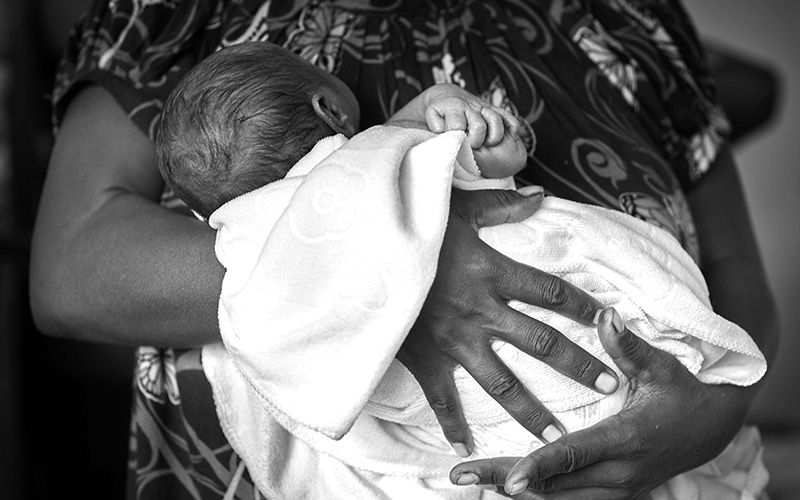Pictured from left to right: Florita Toa, Caroline van Gemert, Obed Manwo, Margaret Hellard, Chargé d'Affaires and Annie Tassiets.
Hepatitis B is a viral infection that attacks the liver and can cause serious conditions like liver cancer and cirrhosis.
Globally, mother-to-child transmission accounts for 40% of new hepatitis B infections, with higher risks associated with pregnant women who have a high viral load.
In Vanuatu, hepatitis B poses a significant health challenge, affecting some 5% of children and 9% of adults.
The new Protektem Pikinini Blong Yu (Protect Your Child) study, conducted by Burnet Institute and the Vanuatu Ministry of Health, will investigate how effective antiviral prophylaxis is in preventing hepatitis B transmissions from mother to child.
In March 2024, the World Health Organization revised its guidance to recommend universal antiviral prophylaxis for all hepatitis B-infected pregnant women in settings where hepatitis B DNA viral load and hepatitis B e antigen testing are unavailable.
Despite this recommendation, there is still no direct evidence of whether a universal antiviral prophylaxis approach is effective, cost-effective, or feasible.
Co-head of Burnet's Pacific Infectious Diseases (Operational Research, Surveillance and Resilience) working group Dr Caroline van Gemert is the principal investigator of the Protektem Pikinini Blong Yu study.

She said testing in a real-world setting is crucial to determine if universal antiviral prophylaxis is effective and feasible.
"If successful, the approach could be scaled up across the Pacific region, potentially averting hundreds of infections annually," she said.
"The immediate impact of this study could be transformative, potentially preventing numerous hepatitis B infections among infants in Vanuatu."
The field trial will involve hepatitis B-infected pregnant women attending antenatal clinics at selected sites across Vanuatu, where they will receive antiviral prophylaxis during their pregnancy and continue until their baby completes the hepatitis B vaccine series.
Infants will be tested for hepatitis B infection 6-12 months after birth to determine the success of the intervention.
This universal antiviral prophylaxis strategy is a new and significant shift in global efforts to prevent mother-to-child transmission of hepatitis B, particularly in low and low-middle-income countries.






